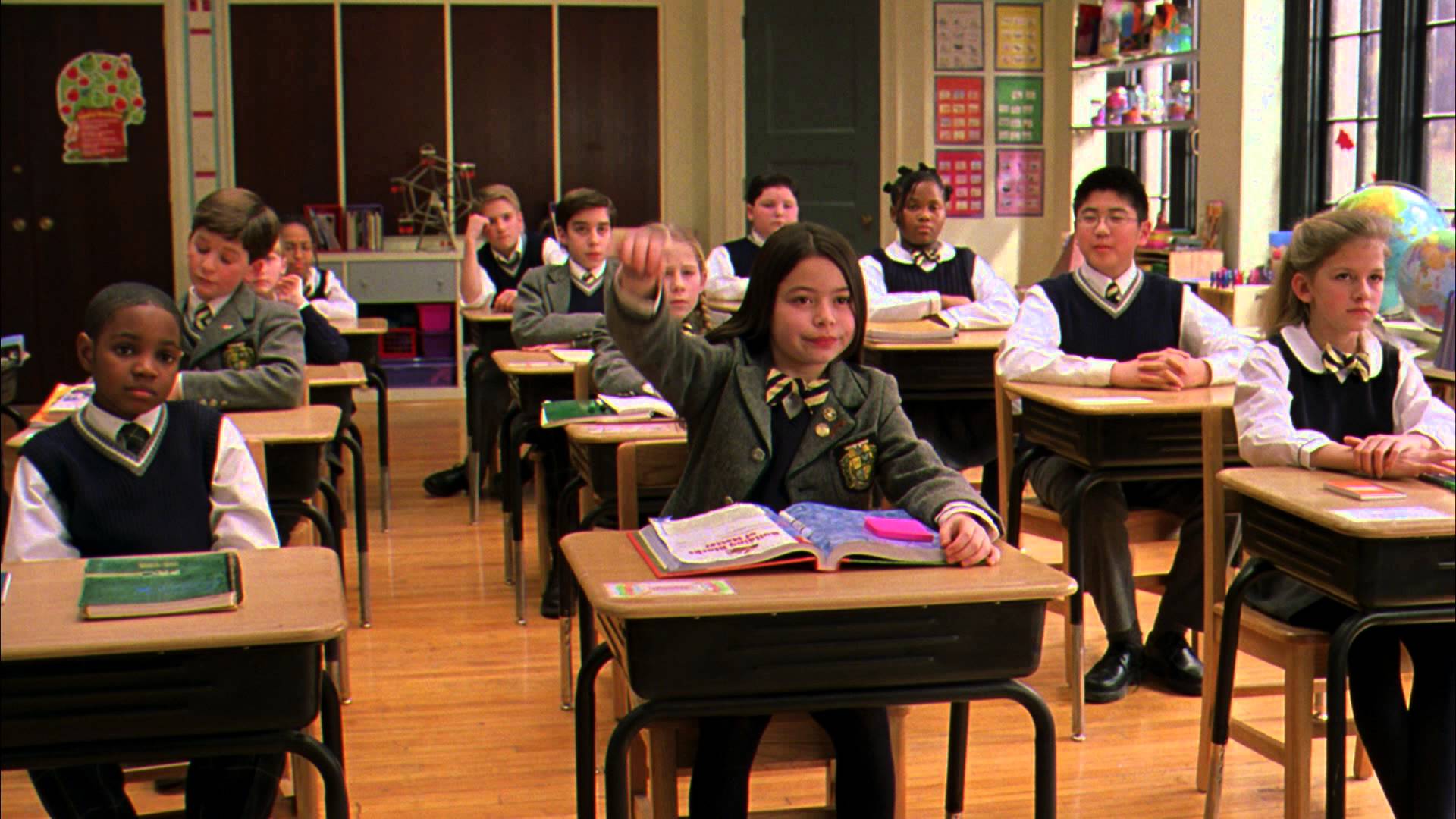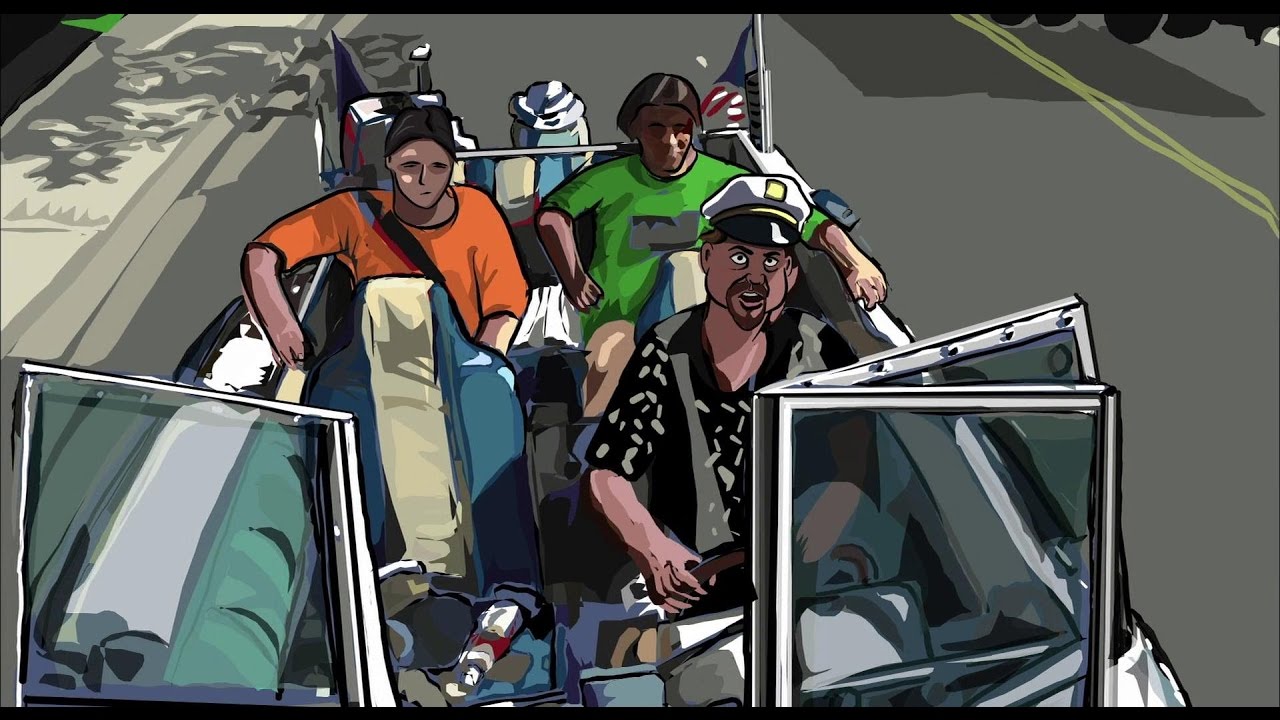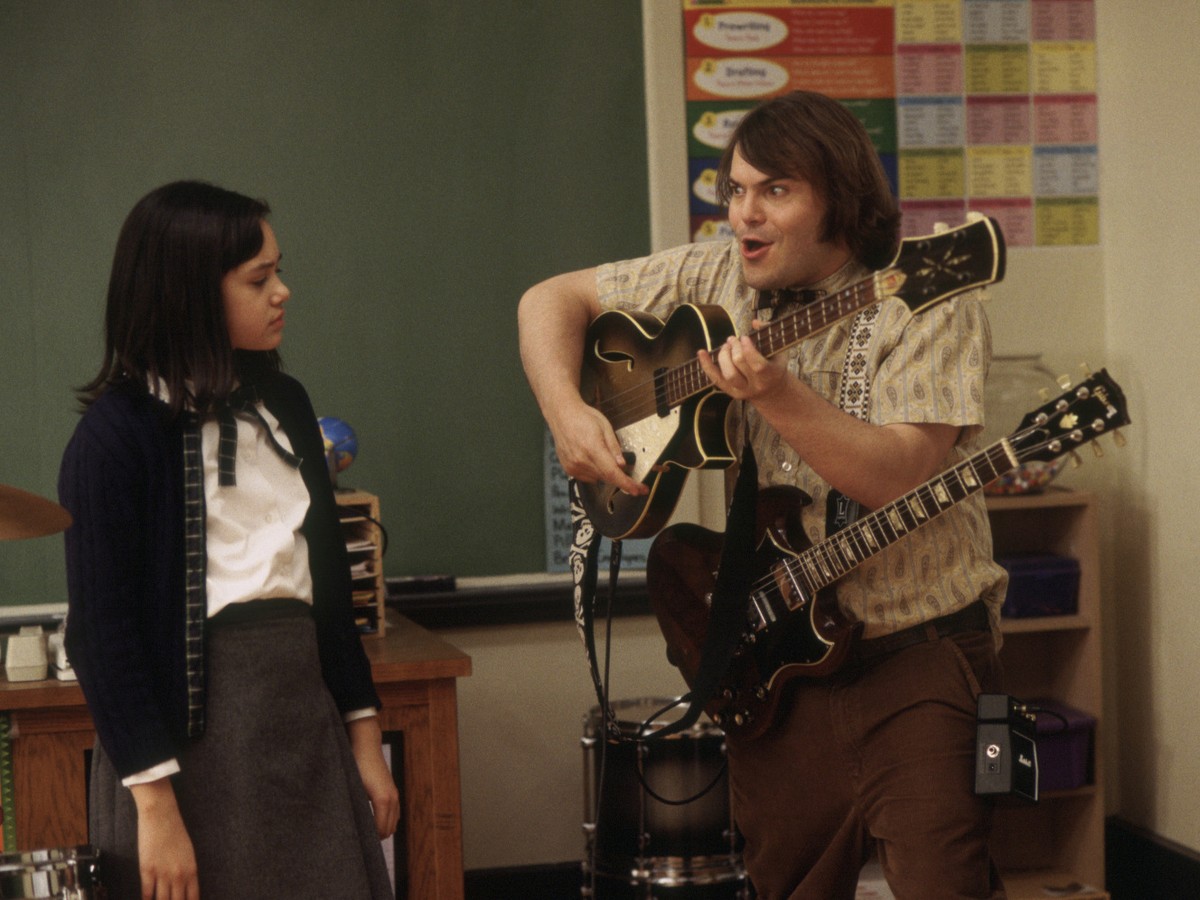Richard Linklater has built an entire career as a study in points that do not quite intersect, moments that do not match, but somehow make complete sense placed together.
That’s an impressive feat for a guy who followed up the meandering, anarchic Slacker with the glazed hijinks and pre-collegiate accessibility of Dazed and Confused; the discursive, achingly romantic Before Sunrise (a romance he, with Julie Delpy and Ethan Hawke, methodically chips away at in its sequels, constructing the greatest trilogy since Ray’s) with Eric Bogosian’s quasi-punky SubUrbia, followed promptly by a heist film (The Newton Boys). To say nothing of a remake of Bad News Bears, an off-kilter adaptation of Eric Schlosser’s expose Fast Food Nation, a Philip K. Dick homage in A Scanner Darkly, the period sensibility of Me and Orson Welles, or the out-of-nowhere revelation of Boyhood, more or less filmed in secret over the course of close to 2 decades. As the kids say, what the actual fuck.
 Roger Ebert wrote that “Linklater has never made a formula story, and I don’t believe he ever will.” These disparate treatments indicate a wide-ranging sensibility, sure, but also a kind of admirable omnivorism, a pulsing interest in forms and structures. They’re not all great movies, but they’re all fascinating.
Roger Ebert wrote that “Linklater has never made a formula story, and I don’t believe he ever will.” These disparate treatments indicate a wide-ranging sensibility, sure, but also a kind of admirable omnivorism, a pulsing interest in forms and structures. They’re not all great movies, but they’re all fascinating.
And they’re all fixated on time, as even the most casual observer will recognize. Even the dumb ones focus on time; fractured, bounded. From the very start, Linklater imagines a world in between. Neither Waking Life or School of Rock are the things I imagine Linklater would highlight on his resume. In the strange way these things coalesce, I think they’re maybe his most representative films.
 In the great push and pull of everything, it’s fair to say that both Waking Life and School of Rock are silly texts. They ask very little of you, apart from joining them on a swift ride, steered by a guy who might just leap off the boat.
In the great push and pull of everything, it’s fair to say that both Waking Life and School of Rock are silly texts. They ask very little of you, apart from joining them on a swift ride, steered by a guy who might just leap off the boat.
They are untethered from narrative constraints, and yet somehow obvious. (In Waking Life, the dream within the dream precludes a sense of wholeness or predictability; in School of Rock, that very predictably allows for weird tangents.) We know these stories. In Waking Life, that ride is through the contours of Linklater’s discursive blathering – it’s talky and annoying and fun, the perfect film for the bro’d-out stoners of Dazed and Confused or Everybody Wants Some!!! to check out half of, before sleep or disappointing sex, or, g-d forbid, someone breaks out the Foucault. School of Rock is fun for the whole family, if your family loves shit about how it’s hard to make it in this world, for over-educated white guys who just wish someone would put on a fucking song already. Both are, more than anything else, exuberant.
Linklater, as has prominently been noted by noted scholars and also me, is the pre-eminent philosopher of time working in popular entertainment. Kogonada, whose Columbus was in many ways an ode to his hero, has detailed this at length. At a crucial moment in Before Sunset, Ethan Hawke delivers a partial recitation of this W.H. Auden poem. Hawke is adorably bad, imitating Dylan Thomas in a way that feels genuine, and also deeply embarrassing:
As I walked out one evening,
Walking down Bristol Street,
The crowds upon the pavement
Were fields of harvest wheat.
And down by the brimming river
I heard a lover sing
Under an arch of the railway:
‘Love has no ending.
‘I’ll love you, dear, I’ll love you
Till China and Africa meet,
And the river jumps over the mountain
And the salmon sing in the street,
‘I’ll love you till the ocean
Is folded and hung up to dry
And the seven stars go squawking
Like geese about the sky.
‘The years shall run like rabbits,
For in my arms I hold
The Flower of the Ages,
And the first love of the world.’
But all the clocks in the city
Began to whirr and chime:
‘O let not Time deceive you,
You cannot conquer Time.
‘In the burrows of the Nightmare
Where Justice naked is,
Time watches from the shadow
And coughs when you would kiss.
‘In headaches and in worry
Vaguely life leaks away,
And Time will have his fancy
To-morrow or to-day.
‘Into many a green valley
Drifts the appalling snow;
Time breaks the threaded dances
And the diver’s brilliant bow.
‘O plunge your hands in water,
Plunge them in up to the wrist;
Stare, stare in the basin
And wonder what you’ve missed.
‘The glacier knocks in the cupboard,
The desert sighs in the bed,
And the crack in the tea-cup opens
A lane to the land of the dead.
‘Where the beggars raffle the banknotes
And the Giant is enchanting to Jack,
And the Lily-white Boy is a Roarer,
And Jill goes down on her back.
‘O look, look in the mirror,
O look in your distress:
Life remains a blessing
Although you cannot bless.
‘O stand, stand at the window
As the tears scald and start;
You shall love your crooked neighbour
With your crooked heart.’
It was late, late in the evening,
The lovers they were gone;
The clocks had ceased their chiming,
And the deep river ran on.
 That Linklater would insist on its inclusion tells us a lot about Linklater. The central conflict in the poem is between romance and time. Apart from the “one for me, one for them” logic of his output, we have to acknowledge this emphasis. “The deep river ran on.”
That Linklater would insist on its inclusion tells us a lot about Linklater. The central conflict in the poem is between romance and time. Apart from the “one for me, one for them” logic of his output, we have to acknowledge this emphasis. “The deep river ran on.”
School of Rock is a film that emphasizes the alienation of dreamers, and the ecstatic release that accompanies knowing what you were sent here to do; in this case, it is to reinvigorate blunted exuberance with the power of dumb songs. Waking Life is a movie about a dream, and the anxiety that we cannot escape. They are two sides to the same coin. The crowd-pleasing hijinks of School of Rock (“Those who cannot do, teach. And those who cannot teach, teach gym.”) seem sort of alien to the interiorized fixations of Waking Life, but it’s not so. Wiley Wiggins might could be Jack Black, if things were different. The question is how to make things different.
 The rotoscoped half-wisdoms of Waking Life would have no place in the offbeat formula comedy of School of Rock (written by and starring Mike White, who somehow emerged from “Chuck and Buck, suck and fuck” to children’s fare, but that’s a story for another day.) Yet they do seem to occupy something, together – call it a temporary autonomous zone, if you like.
The rotoscoped half-wisdoms of Waking Life would have no place in the offbeat formula comedy of School of Rock (written by and starring Mike White, who somehow emerged from “Chuck and Buck, suck and fuck” to children’s fare, but that’s a story for another day.) Yet they do seem to occupy something, together – call it a temporary autonomous zone, if you like.
It feels daring, this Linklater aesthetic, and something I profoundly relate to. Watching these movies in a row only convinced me further that he’s not fucking around.
In one of my favorite sequences from Waking Life, the one in which Linklater himself appears (playing pinball and philosophizing, a ridiculous and almost certainly true-to-life self-portrait), he says, “I’m not saying you don’t know what you’re talking about. It’s just that I don’t know what you’re talking about.” This gap between experience and knowing is as central to the aesthetic as time, or whatever it is we perceive time to be. Waking Life is an omnivorous collection of snapshots, democratically presented. It wants to eat everything in its path. School of Rock is bounded and conventional, but strangely convinced that shackles can be removed, looking around wildly for escape hatches.
It’s a career-long shaggy dog story, delivered through a variety of formal structures. What do we know? How do we know it? Why are we here? Why shouldn’t we be? What’s the meaning behind the meanings? Is there a God? Can I ever know someone? Can I ever know myself? What is knowing?
Oh fuck it, let’s rock.

